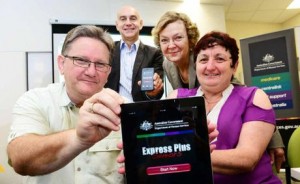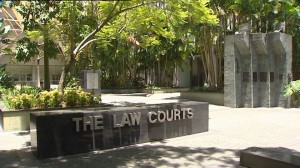 DIVORCE is a huge, costly and emotional expense, so it may come as no surprise that a number of companies out there are cashing in on your heartbreak.
DIVORCE is a huge, costly and emotional expense, so it may come as no surprise that a number of companies out there are cashing in on your heartbreak.
Industries ranging from law to counselling and childcare services are all reaping the benefits of Australia’s growing divorce rate, according to data collected by business information analysts at IBISWorld.
Perhaps unsurprisingly, the legal industry is the biggest beneficiary in a divorce case but more ironically wedding services for remarriages as well as online dating services were also benefiting from couples undertaking the permanent break-up shuffle.
In the last five years, the number of divorces in Australia has jumped by 8.7 per cent, rising from 47,209 in 2008 to 51,311 in 2013.
And with the average cost of an Australian divorce ranging from $3600 up to $10,000, divorce has fast become big business with the total overall cost rising by 13.5 per cent to $184.1 million, and by 14.7 per cent to $155.5 million for contested cases.
Couples undertaking divorce were also likely to be hit with extra expenses such as unforeseen legal fees, relocation, child care and lost work costs.
IBISWorld General Manager (Australia), Karen Dobie said declining religious participation, greater individual independence, as well as increasing work pressures were all contributing factors to the nation’s rising divorce rate and costs.
“Generally speaking, a contested divorce requires more legal involvement than an uncontested one – resulting in a significantly higher cost”, Ms Dobie said.
IBISWorld senior analyst Jeremy Edwards said the data, taken over a five-year period, assessed a number of metrics including the numbers of divorces, legal services costs, ABS figures as well as divorce applications.
Mr Edwards said it was hardly surprising the legal industry benefited the most as both the growth and cost of services had increased as had online dating and wedding services.
“The reality is people do move on and will get remarried,” he said.
“There’s less stigma now surrounding divorce and lack of ties to religion does make it easier now for some people.”
Mr Edwards said other industries also benefited indirectly from divorce including retail as people brought extra furniture for new homes, relocation services, hotels and even real estate agents gained as people looked for short-term accommodation options.
The top industries benefiting from divorce:
Personal legal services
According to IBISWorld, divorce accounts for around 6.0 per cent of Australia’s personal legal services industry, which generates around $185 million in revenue each year. As divorce becomes more complex, so does the cost with advice, litigation, alternative dispute resolution and arbitration all costing big bucks.
Personal welfare services: counselling
Support services such as counselling are predicted to account for $1.9 billion, or 21.1 per cent, of the personal welfare services industry. Ms Dobie said couples often sought counselling before a divorce but that families also benefitted from support services post break-up as well.
Personal services: online dating
Online dating is another industry booming from our heartbreak, Ms Dobie says.
“Over the past five years, online dating has boomed in popularity, particularly among divorcees, resulting in a growing number of sites specialising in getting Aussies back in the game post-split,” she said.
Childcare and babysitting services
Couples with children were using more childcare services as some parents moved from a two-parent to a single parent household and juggled extra work demands and hours. According to the date, childcare and babysitting services, are set to generate revenue of $10.3 billion and $175.2 million respectively in 2012-13.
Wedding services
Ms Dobie said it was ironic that Australia’s wedding industry was benefiting as well with around 30 per cent of marriages now including at least one divorcee.
“Remarriages, particularly those involving two divorcees, tend to be more subdued affairs – with the big church wedding and sit-down reception often being replaced by a garden setting, celebrant and good-quality catering company”, Ms Dobie said.
She added that celebrants, food and beverage suppliers and photographers were also generating increased revenue as well.
 Techo savvy seniors can now avoid the dreaded Centrelink queues through a new smartphone and tablet app.
Techo savvy seniors can now avoid the dreaded Centrelink queues through a new smartphone and tablet app. Liberal MPs are quietly lobbying to change the party’s position on same-sex marriage to ensure a conscience vote on the issue, but are not pushing for a result before September’s federal election.
Liberal MPs are quietly lobbying to change the party’s position on same-sex marriage to ensure a conscience vote on the issue, but are not pushing for a result before September’s federal election. FAMILY Relationship Centres have called for the revenue from court fee increases of 20 per cent intended to deter vexatious litigants to be redirected to mediation services to help at-risk children.
FAMILY Relationship Centres have called for the revenue from court fee increases of 20 per cent intended to deter vexatious litigants to be redirected to mediation services to help at-risk children. A 17-year-old Jehovah’s
A 17-year-old Jehovah’s  A FATHER is about to be hit with an almost half-million dollar bill he owes two former lovers after a court ruled he had paid them virtually no child support.
A FATHER is about to be hit with an almost half-million dollar bill he owes two former lovers after a court ruled he had paid them virtually no child support.
 One British juror who could not reach a verdict on a child abduction and sexual assault
One British juror who could not reach a verdict on a child abduction and sexual assault  The New South Wales Government has defended a decision to end funding for the Welfare Rights Centre.
The New South Wales Government has defended a decision to end funding for the Welfare Rights Centre. A newlywed found out her “husband” was already married after getting a message on Facebook.
A newlywed found out her “husband” was already married after getting a message on Facebook.